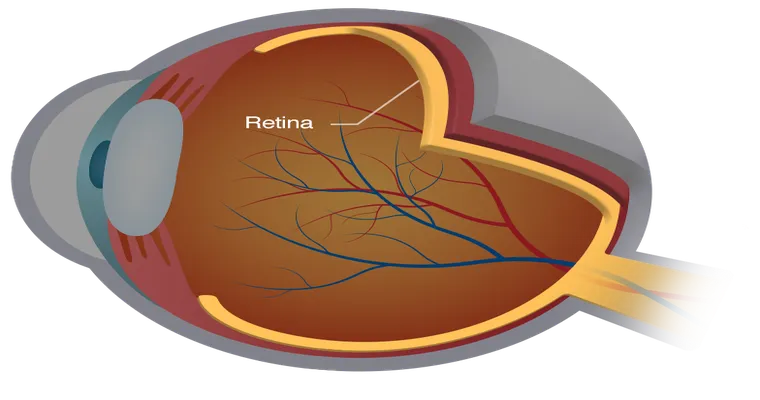Eye problems can significantly impact an individual's quality of life, with "retina detachment" and "macula problems" being among the most serious conditions. These issues can lead to vision loss if not diagnosed and treated promptly. Understanding the causes, symptoms, and treatment options for these eye conditions is essential for maintaining good eye health.
What is Retina Detachment?
"Retina detachment" occurs when the retina, a thin layer of tissue at the back of the eye, separates from its underlying supportive tissue. This condition can lead to permanent vision loss if not treated immediately. The retina is responsible for sending visual signals to the brain, making its health crucial for clear vision.
Causes of Retina Detachment
Several factors can contribute to retina detachment, including:
Aging: The risk increases as individuals age, particularly after 50.
Eye injuries: Trauma to the eye can cause detachment.
Previous eye surgeries: Certain procedures may increase the likelihood of detachment.
Medical conditions: Diseases such as diabetes can lead to complications affecting the retina.
Symptoms of Retina Detachment
Common symptoms of retina detachment include:
Sudden appearance of floaters or flashes of light
A shadow or curtain over a portion of the visual field
Blurred or distorted vision
A sudden decrease in vision
If you experience any of these symptoms, it is crucial to seek immediate medical attention.
What are Macula Problems?
The "macula" is a small area in the center of the retina responsible for sharp, central vision, which is essential for activities like reading and driving. Problems with the macula can severely affect vision clarity and quality.
Types of Macula Problems
1. "Macular Degeneration": This age-related condition leads to the gradual deterioration of the macula, resulting in loss of central vision.
2. "Macular Hole": A small break in the macula that can cause blurred or distorted vision.
3. "Diabetic Macular Edema": A complication of diabetes that causes swelling in the macula due to fluid leakage.
Symptoms of Macula Problems
Symptoms can vary depending on the specific condition but often include:
Blurry or distorted central vision
Difficulty recognizing faces
Dark or empty areas in the center of vision
Changes in color perception
Diagnosis and Treatment Options
Diagnosing "retina detachment" and "macula problems" typically involves a comprehensive eye exam, including visual acuity tests and imaging techniques like optical coherence tomography (OCT) or fluorescein angiography.
Treatment for Retina Detachment
Treatment options for retina detachment may include:
"Laser Surgery": To seal tears in the retina.
"Pneumatic Retinopexy": A gas bubble is injected into the eye to help reattach the retina.
"Scleral Buckling": A silicone band is placed around the eye to relieve tension on the retina.
Treatment for Macula Problems
Treatment for macula problems varies based on the specific condition:
"Macular Degeneration": Options may include dietary changes, supplements, and anti-VEGF injections to slow progression.
"Macular Hole": Surgical intervention may be necessary to repair the hole.
"Diabetic Macular Edema": Treatments can include laser therapy and corticosteroids to reduce swelling.
Conclusion
Understanding "retina detachment" and "macula problems" is essential for anyone concerned about their eye health. Early detection and treatment are vital to prevent permanent vision loss. Regular eye exams and being aware of the symptoms can help individuals manage their eye health proactively. If you experience any symptoms related to these conditions, don’t hesitate to consult an eye care professional for a thorough examination. Taking care of your eyes today will help secure your vision for tomorrow.





